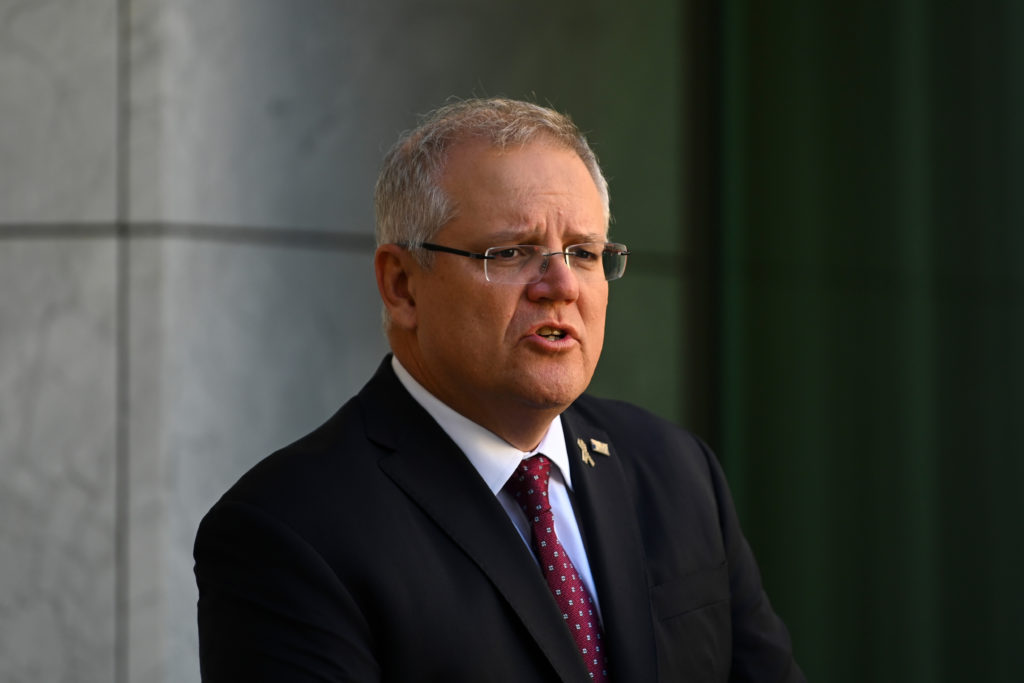Australia/Israel Review
Editorial: Australian leadership momentum
Oct 25, 2021 | Colin Rubenstein

These are surely auspicious times for policymaking in Australia. After many challenging months of relative isolation due to the global pandemic, highly-vaccinated Australia is gradually reopening and reconnecting to the world – socially, economically and diplomatically.
Revitalised global engagement brings with it new opportunities to refine Australia’s policies and international stances in a changing world, maximising our voice on the global scene – as a force for democracy, human rights, and a stable, peaceful international order, all of which are profoundly in our national interests.
Recent debates over confronting China’s growing regional aggression and Australia’s greenhouse gas emission targets highlight some of the complexities in making decisions that balance domestic priorities with Australia’s international reputation and hopes to play a strong role on the global stage.
Yet, in certain respects, this reorientation process has already been unfolding throughout the course of the past year, thanks to a number of principled and wise decisions from Government and Opposition leaders in Canberra.
Prime Minister Scott Morrison’s decision in May 2021 for Australia to be one of the first countries to announce a boycott of September’s “Durban IV” Conference event marking the 20th anniversary of an “anti-racism forum” poisoned by antisemitism, showed true global leadership. It paved the way for other like-minded countries to follow Australia’s lead. In the end, 34 countries boycotted the event – more than twice the number that did so on Durban’s 10th anniversary.
Also extremely important was PM Morrison’s recent announcement to the Malmö International Forum on Holocaust Remembrance and Combating Antisemitism that the Australian “Government”, “people” and “nation” will “embrace” the International Holocaust Remembrance Alliance (IHRA) Working Definition of Antisemitism.
Moreover, our leaders have made it clear that fighting antisemitism is an unequivocal bipartisan national interest, as Labor Party and Opposition Leader Anthony Albanese committed to Jewish leaders in July that a future Labor government would also endorse the IHRA definition. This bipartisanship was underlined by the welcome adoption of the IHRA definition and anti-BDS resolutions at the NSW ALP State Conference on Oct. 9.
The IHRA announcement, while important and welcome, must be viewed as only the first step on a journey. As AIJAC’s Judy Maynard & Naomi Levin report (p.20), the crucial first step in combating antisemitism is defining it in a way that is accepted by a broad consensus, as almost all Western democracies have recognised by adopting this definition, and then disseminating and operationalising it in areas of society such as education, law enforcement and cultural policy.
The Malmö Forum set out a template and a program for countries to move forward, jointly yet autonomously, tapping into innovative global initiatives against antisemitism, including those promoted by Europe and Canada. Australia should be part of the global effort to maintain the momentum of Malmö.
More welcome news related to Australia’s role in an interconnected global system came from the Parliamentary Joint Committee on Intelligence and Security (PJCIS). In June and October respectively, this Committee recommended, on a bipartisan basis, improvements to Government policy by embracing the overwhelming evidence about the reality of both Hezbollah and Hamas, and calling for expansion of Australia’s terrorism listings to include both groups in their entirety.
Hezbollah is already wholly proscribed by the US, Canada, the UK, Germany and many other countries, while all of Hamas is listed as a terror group by the US, Canada and the European Union.
In the session on Hezbollah, counterterrorism expert Dr. Matthew Levitt of the Washington Institute for Near East Policy implicitly urged the PJCIS to recognise that banning all of Hezbollah is a matter of good international citizenship, as well as in Australia’s national interests.
“Banning only part of Hezbollah has not worked. Hezbollah called the bluff of those countries which continued to ban only part of the group by continuing to engage in terrorist and criminal activities notwithstanding the partial ban,” he said. A full ban, he said, would help “contribute to stability in Lebanon” and impose costs on Hezbollah’s ongoing “terrorist, militant and illicit financial activities” internationally.
Regrettably, Australia currently has the weakest stance on Hezbollah of any member of the Five Eyes intelligence-sharing alliance – which also includes the US, Canada, UK and New Zealand.
Meanwhile, addressing the PJCIS as an expert on Hamas, Dr. Jonathan Schanzer of the Foundation for Defense of Democracies called distinctions between the military and political branches of the group a “fiction” some countries employ to allow engagement with it.
Like Levitt, Schanzer implicitly urged Australia to be part of international efforts to sanction and marginalise Hamas given its destructive and murderous activities, saying, “In expanding its listing to include the entirety of Hamas, Australia will more closely align with key like-minded countries around the world that have taken this important and necessary step.”
AIJAC is proud to be counted among those who contributed valuable evidence to both Committee hearings and we are grateful that all members of the Committee, from both sides of politics, have recommended proscribing the entirety of both Hezbollah and Hamas.
The final decision now rests with Home Affairs Minister Karen Andrews, who we are sure will thoroughly review and then hopefully adopt the Committee’s sound recommendations as soon as practicable.
Australia is again demonstrating it can play a strong leadership role on the world stage, and be a force for good, serving our key interests in the process. A small but essential element of being ready to do so is to follow through on recent policy achievements and recommendations with respect to the global battle against antisemitism and the fight against terrorism and extremism as epitomised by Hezbollah and Hamas. Maintaining the momentum and following through on both these fronts is the important challenge ahead.
Tags: Anti-Zionism, Antisemitism, Australia, BDS, Hamas, Hezbollah, IHRA definition






